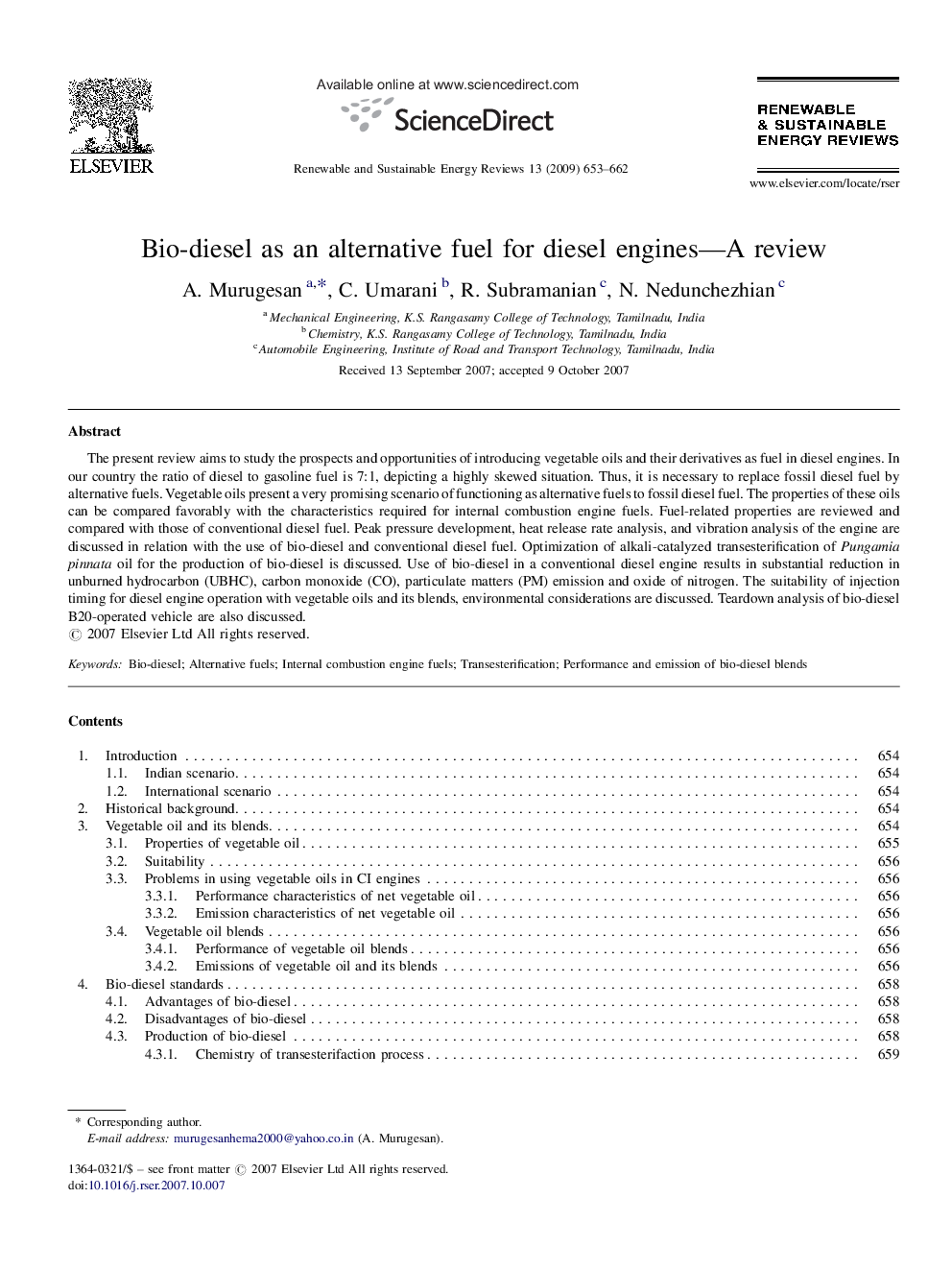| Article ID | Journal | Published Year | Pages | File Type |
|---|---|---|---|---|
| 1752198 | Renewable and Sustainable Energy Reviews | 2009 | 10 Pages |
The present review aims to study the prospects and opportunities of introducing vegetable oils and their derivatives as fuel in diesel engines. In our country the ratio of diesel to gasoline fuel is 7:1, depicting a highly skewed situation. Thus, it is necessary to replace fossil diesel fuel by alternative fuels. Vegetable oils present a very promising scenario of functioning as alternative fuels to fossil diesel fuel. The properties of these oils can be compared favorably with the characteristics required for internal combustion engine fuels. Fuel-related properties are reviewed and compared with those of conventional diesel fuel. Peak pressure development, heat release rate analysis, and vibration analysis of the engine are discussed in relation with the use of bio-diesel and conventional diesel fuel. Optimization of alkali-catalyzed transesterification of Pungamia pinnata oil for the production of bio-diesel is discussed. Use of bio-diesel in a conventional diesel engine results in substantial reduction in unburned hydrocarbon (UBHC), carbon monoxide (CO), particulate matters (PM) emission and oxide of nitrogen. The suitability of injection timing for diesel engine operation with vegetable oils and its blends, environmental considerations are discussed. Teardown analysis of bio-diesel B20-operated vehicle are also discussed.
